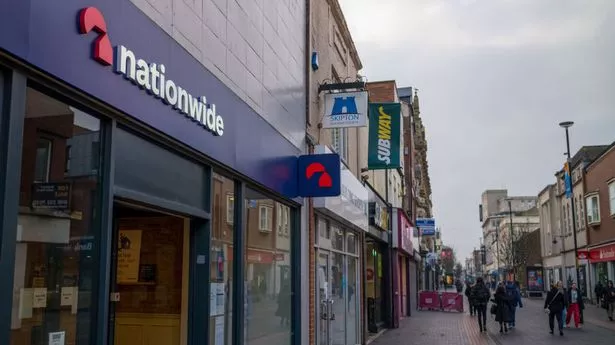In the seasonal scramble to snap up a bargain it can be all too easy to get caught up in the hunt for a Christmas bargain and leave yourself at risk of being scammed.
Nationwide has issued a warning to online shoppers this festive season telling people not to get caught out by purchase scams. There is no worse time of year to find out you’ve been the victim of online fraud than in the run-up to Christmas. But by reading up on purchase scams and following the simple tips below, you can ensure you stay safe shopping for the perfect gifts.
What are purchase scams?
All too many of us will be familiar with the experience: you find a bargain online, the seller looks legit and maybe you even communicate back and forth with them before the sale. It comes time to pay and they ask for a bank transfer, they seem like the real deal so you send over the money and then, nothing, the seller goes silent and your money has vanished. Needless to say, that ideal Christmas gift you ordered never appears.
If you have experienced this, not only is it upsetting, it can also be humiliating to know you’ve had the wool pulled over your eyes. But you are not alone, UK Finance's Annual Fraud Report shows that in 2023 £77 million was lost through purchase scams, with scammers making an average of £549 per scam.
There are several tell-tale signs to look out for - firstly, sellers that ask for payment by bank transfer. Debit and credit cards are a much more secure way for you to pay, offering the chance of help if something goes wrong. Check out the seller and their website as thoroughly as possible, does the site look legitimate, are there customer reviews, do they look real?
Some of the best deals can be found in online marketplaces like Gumtree or Facebook Marketplace but these can also be some of the least secure ways of buying online. If you’re buying from an individual on a marketplace website, do everything you can to make sure the items you are purchasing actually exist. Ask for more pictures of the goods if you feel unsure, sellers should easily be able to provide them if they are not bogus.
Also it always pays to shop around - do some research on prices for similar items, if you are paying way under the odds then ask yourself why. The chances are if the price is suspiciously low, there may be something fishy going on.
Why is it safer to pay by card?
Paying by credit or debit card allows you to raise a complaint with the card issuer if you have bought goods from a seller using their card and something has gone wrong. If something you’ve paid for fails to turn up or there is a problem with the items that arrive you can try messaging the seller first. But if they will not help then if you have made the purchase using a credit or debit card you can ask your bank to issue a chargeback. A chargeback lets you challenge and ‘claw back’ payments made using a debit or credit card. Different card schemes like Visa or Mastercard have different rules for this so check with your bank for details on how to do this.
Section 75 of the Consumer Credit Act 1974 covers purchases made on credit cards and lets you raise a claim against your bank or lender if the person you bought items from has misrepresented them to you during the sale. This only applies to credit cards and the value of the purchase must be more than £100 but not more than £30,000 - but you only need to have paid for part of it on a credit card to be covered by section 75.
Tips to remember
Nationwide published the following list of tips for shoppers to bear in mind while shopping online this festive season to avoid a Christmas catastrophe.
Be wary of any prices or deals that feel too good to be true
It means they probably are.
Don’t pay anyone you don’t know by bank transfer
Where possible, use a credit card for purchases over £100 and up to £30,000 – they’re protected under Section 75 of the Consumer Credit Act.
Make sure you don’t feel rushed
Scammers will often create a sense of urgency. Saying it’s a limited offer or price encourages you to act without taking as much time to consider the purchase.
Always do your research before buying anything
And with more expensive items, such as a car, take the time to see it in person and check all documents thoroughly.
Use official websites
Especially when buying things such as concert or gig tickets. Find out more about ticket fraud (opens in a new window)
Check that the offer is genuine when buying a holiday online
Be sure to look for independent reviews. And check that the provider is registered with ABTA or ATOL. They are the travel protection agencies.
Don’t share any one-time codes that you’re sent when shopping online
These codes are used to confirm that you’re the one making the purchase, so don’t share them with anyone.
Nationwide also runs a scam check service, other banks and building societies also offer similar services, which allow customers to call or come into a branch and staff will tell you if they think a payment you are being asked for is a scam or not.
